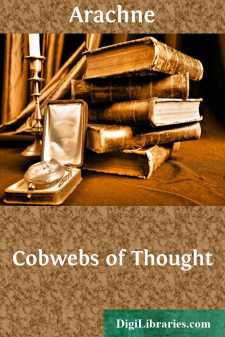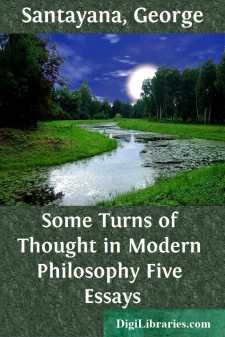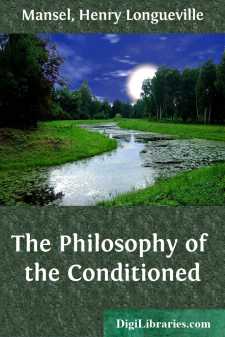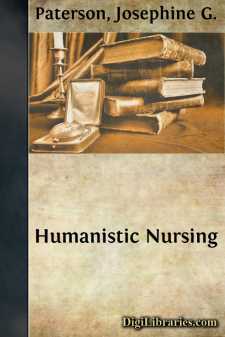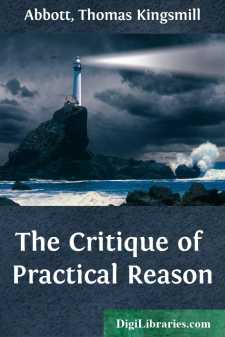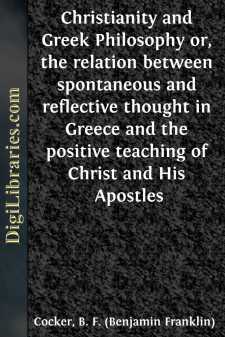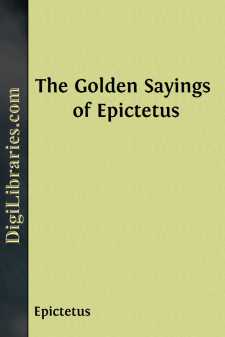Philosophy
- Aesthetics 11
- Eastern 1
- Ethics & Moral Philosophy 2
- General
- Hindu 2
- History & Surveys 3
- Logic 1
- Metaphysics 3
- Political 1
- Religious 7
- Social 3
- Taoist 1
General Books
Sort by:
by:
Arachne
I. OUR IGNORANCE OF OURSELVES. Self-Analysis, apart from its scientific uses, has seldom rewarded those who have practised it. To probe into the inner world of motive and desire has proved of small benefit to any one, whether hermit, monk or nun, indeed it has been altogether mischievous in result, unless the mind that probed, was especially healthy. Bitter has been the dissatisfaction, both with the...
more...
by:
George Santayana
I A good portrait of Locke would require an elaborate background. His is not a figure to stand statuesquely in a void: the pose might not seem grand enough for bronze or marble. Rather he should be painted in the manner of the Dutch masters, in a sunny interior, scrupulously furnished with all the implements of domestic comfort and philosophic enquiry: the Holy Bible open majestically before him, and...
more...
THE PHILOSOPHY OF THE CONDITIONED. The reader of Plato’s Republic will readily recall to mind that wonderful passage at the end of the sixth book, in which the philosopher, under the image of geometrical lines, exhibits the various relations of the intelligible to the sensible world; especially his lofty aspirations with regard to “that second segment of the intelligible world, which reason of...
more...
Out of necessity nursing, as a profession, reflects the qualities of the culture in which it exists. In our culture for the past quarter of a century nursing has been assailed with rapid economic, technological, shortage- abundance, changing scenes' vicissitudes. In the individual nurse these arouse turmoil and uncertainty. These cultural stirrings inflame that part of the nurse's spirit...
more...
PROLOGUE What I am anxious to attempt in this anticipatory summary of the contents of this book is a simple estimate of its final conclusions, in such a form as shall eliminate all technical terms and reduce the matter to a plain statement, intelligible as far as such a thing can be made intelligible, to the apprehension of such persons as have not had the luck, or the ill-luck, of a plunge into the...
more...
The reason passes, like the heart, through certain epochs and transitions, but its development is not so often portrayed. Men seem to have been satisfied with unfolding the passions in their extremes, their aberration, and their results, without considering how closely they are bound up with the intellectual constitution of the individual. Degeneracy in morals roots in a one-sided and wavering...
more...
PREFACE. This work is called the Critique of Practical Reason, not of the pure practical reason, although its parallelism with the speculative critique would seem to require the latter term. The reason of this appears sufficiently from the treatise itself. Its business is to show that there is pure practical reason, and for this purpose it criticizes the entire practical faculty of reason. If it...
more...
PREFACE. In preparing the present volume, the writer has been actuated by a conscientious desire to deepen and vivify our faith in the Christian system of truth, by showing that it does not rest solely on a special class of facts, but upon all the facts of nature and humanity; that its authority does not repose alone on the peculiar and supernatural events which transpired in Palestine, but also on the...
more...
by:
Epictetus
I Are these the only works of Providence within us? What words suffice to praise or set them forth? Had we but understanding, should we ever cease hymning and blessing the Divine Power, both openly and in secret, and telling of His gracious gifts? Whether digging or ploughing or eating, should we not sing the hymn to God:— Great is God, for that He hath given us such instruments to till the ground...
more...
INTRODUCTION. OUR age is retrospective. It builds the sepulchres of the fathers. It writes biographies, histories, and criticism. The foregoing generations beheld God and nature face to face; we, through their eyes. Why should not we also enjoy an original relation to the universe? Why should not we have a poetry and philosophy of insight and not of tradition, and a religion by revelation to us, and...
more...


